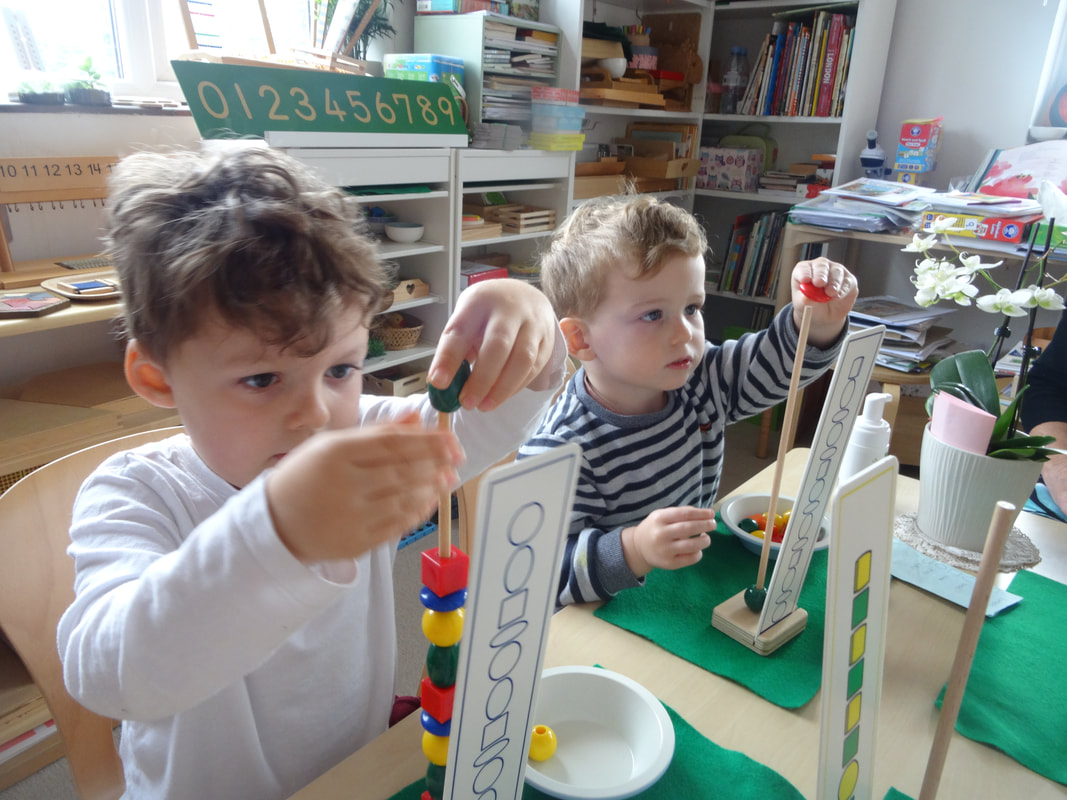|
The ability to regulate affect (emotion) competently is not an innate capacity, but rather learned in and beyond infancy with attachment figures (Schore, 2003). Intense negative and positive emotional experiences that are beyond the capacity of the child to self-regulate are managed (co-regulated) with the help of the care-giver. Through the process of emotional regulation in relationship, the child's ability for self-regulation is developed and enhanced." Handbook of Infant Mental Health, 3rd Edition 2012 Chapter 28, p.457
0 Comments
[The] teacher must know and experience in her daily life the secret of childhood. Through this she arrives not only at a deeper knowledge, but at a new kind of love which does not become attached to the individual person, but to that which lies in the hidden darkness of this secret. When the children show her their real natures, she understands, perhaps for the first time, what love really is. And this revelation transforms her also. It is a thing that touches the heart, and little by little it changes people. Once these facts have been seen ... nothing can cancel the impression their spirits have made and the love they were able to awaken.
- Dr. Maria Montessori, The Absorbent Mind It is attitude that determines how children react to adversity, overcome challenges, create bonds with others and how they learn. It has an important role to play in defining a child’s later life outcomes – for example, how they will perform on a personal level in school, the wider social world and at work. It is attitude that determines how children react to adversity, overcome challenges, create bonds with others and how they learn. It has an important role to play in defining a child’s later life outcomes – for example, how they will perform on a personal level in school, the wider social world and at work.
We need to raise children’s awareness of the importance of building a positive attitude and how responding in the right way can have a positive impact on their futures. Carl Gustav Jung, the Swiss psychoanalyst described ‘attitude’ as an individual’s ‘state of mind’ – a responsive expression towards something, which in turn influences the individual’s thoughts and actions, and is therefore an important consideration in every child’s education. It is important to value each child, to identify their aptitudes and support them in areas where they need support, which includes building positive character or personality traits. Celebrating a child’s effort recognises that they have worked hard, tried challenges, tried new strategies, and learned something about themselves that they can take forward. Children need to experience enthusiasm and inspiration at school and have access to positive role models. If they feel valued in this way, they will, in turn, value others. Our school, as with many other schools in London and other big cosmopolitan cities, supports children and families from a diverse range of backgrounds, with a big mix of cultural attitudes. This influences children and can be confusing for them. Therefore we must provide support for children and their families to build self confidence, raise children’s aspirations, and guide them going forward. We do this by building determination, tenacity, and providing opportunities to try new things and understand that ‘getting it differently’ – not ‘wrong’ or ‘failing’ is often part of the process towards success. Whole class challenges are perfect for developing resilience and strength of will, as well as collaboration, consideration for others, empathy and better communication skills. Empowering children with a sense of independence, and giving them control and responsibility for their own choices and actions, demonstrates that their success is not determined by others. Success lies in their own hands. Students with the right attitude go far. The impact of a child’s attitude on achievement and life chances is profound. We know that positive thinking has many physical, mental and emotional health benefits, and children respond with a good attitude when they experience a well prepared environment where they can visualise a positive outcome from every scenario before even starting. This happens naturally at MEfA Montessori where all the curriculum activities are set out on open shelves for the children to choose from. Most of our children are excited to work toward the goal of the activity - success really matters - it helps to build a strong personality and character. On the other hand we sometimes hear negative words from a child and then we dig deeper into the meaning behind the dialogue, asking, "What's holding you back?" "How can I help?" This shows the child that we are in it together. We play the role of the child's biggest fan and this influences children's levels of confidence. With an "I can" attitude the child gradually replaces negativity with positivity. Our belief in our students (and their parents) helps them to learn new skills, knowledge and understanding - and to acquire a good attitude and thirst for learning. It's a win, win all round. Wendy Fidler, Head of School/Academic Director Co-regulation – the foundation for kindness
|
wendy fidlerArchives
October 2021
Categories |


